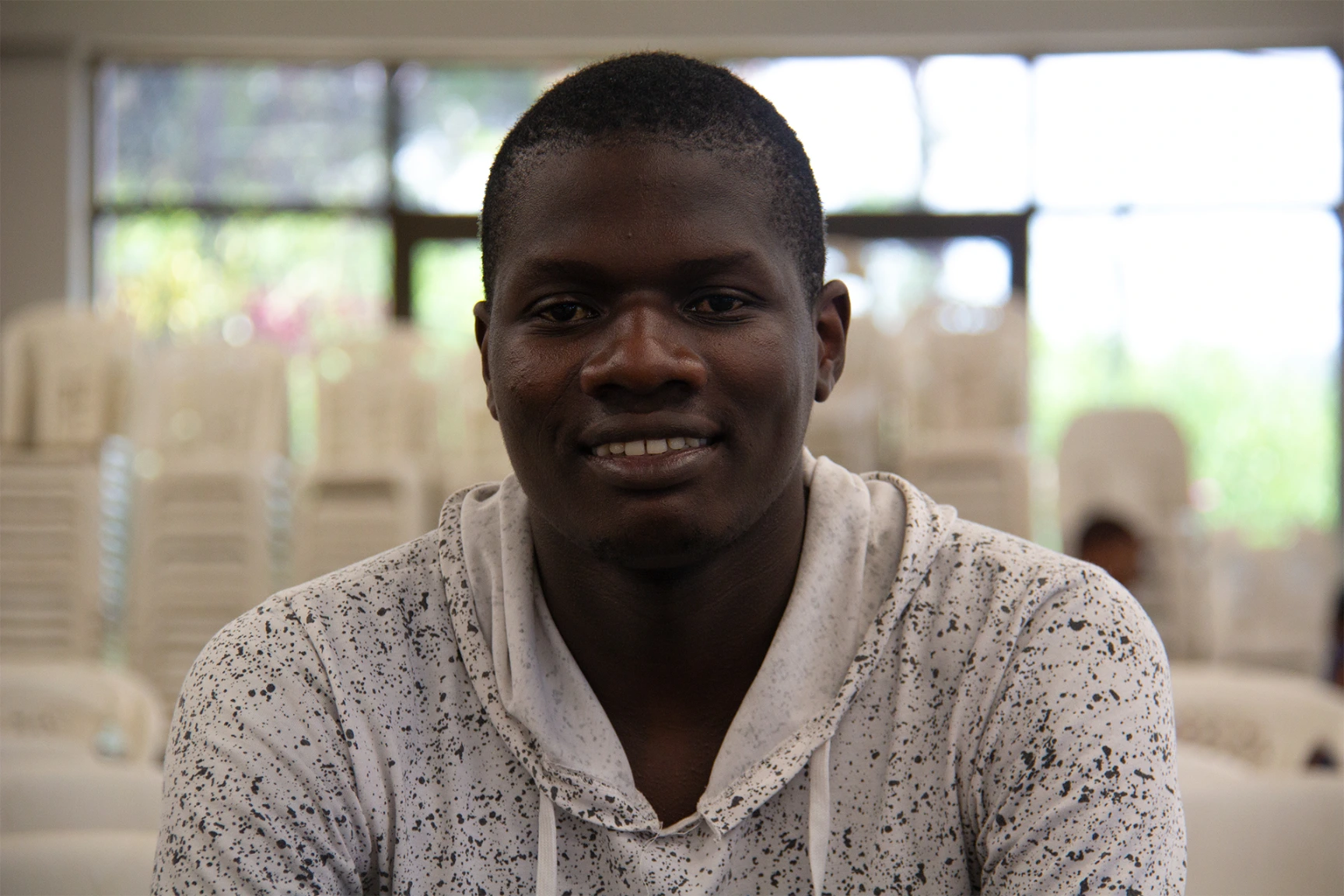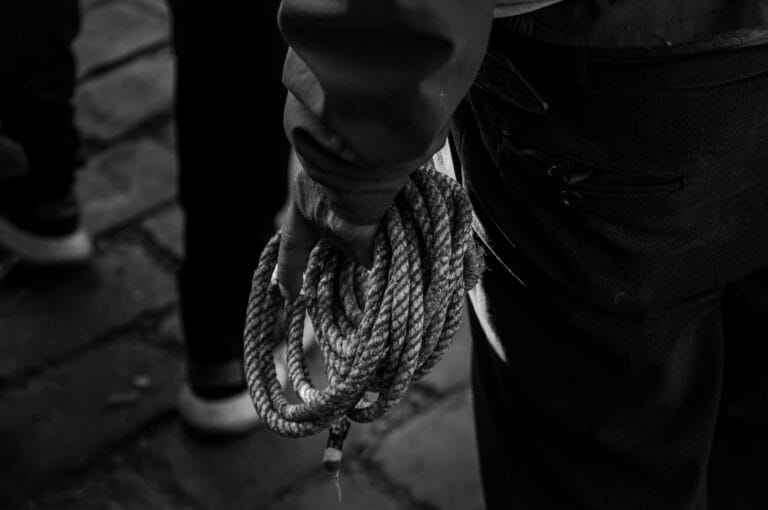If you’re reading this post because something doesn’t feel right about your situation, I need you to know this: you’re not crazy. That uneasy feeling in your gut? Trust it. You might be noticing signs of human trafficking.
If someone told you about a “great opportunity” that now feels like a trap, you’re not alone. If you thought you were in love but now you realize you’re being controlled, you’re not the first person this has happened to. If you came here for work but the job is nothing like what was promised, you’re not imagining things.
What you’re experiencing might be human trafficking. And if it is, there is a way out. There is help. There is hope.
This post could save your life or the life of someone you love. Please read every word.
What Human Trafficking Actually Looks Like
Let’s start by destroying the biggest myth about trafficking: it’s not always dramatic kidnappings by strangers. In fact, that’s rarely how it happens.
Most trafficking victims know their trafficker before the exploitation begins. It might be a romantic partner who seemed perfect at first. It might be a family member. It might be someone who offered you a job. It might be a friend who said they could help you. (See research on coercive control in trafficking relationships.)
Traffickers are experts at manipulation. They know how to identify vulnerable people and they know exactly what to say to gain your trust. By the time you realize what’s happening, you’re already trapped. (Read more about grooming and control tactics.)
Here’s what trafficking actually looks like in South Africa and around the world: it’s the domestic worker who isn’t allowed to leave the house. It’s the young woman who thought she was getting a waitressing job but ended up in a brothel. It’s the teenager whose “boyfriend” is now forcing her to have sex with other men. It’s the farm worker who hasn’t been paid in months and can’t leave because his employer has his documents.
Trafficking is about control, coercion, and exploitation. It’s about someone taking away your freedom and using you for their profit.
And it can happen to anyone.
Are You Being Trafficked? The Warning Signs
I’m going to walk through the indicators of trafficking based on information from A21, one of the world’s leading anti-trafficking organizations. As you read these, pay attention to your gut. If multiple signs apply to your situation, you need to reach out for help immediately. (See full indicators from UNODC and survivor-informed research from OSCE.)
Someone Else Controls Your Life
This is the foundation of almost all trafficking situations. Ask yourself these questions:
Does someone else have your identification documents?
Your passport, ID book, birth certificate, or other papers? Are they “keeping them safe” for you? This is a massive red flag. Traffickers take documents to prevent victims from leaving or seeking help.
Does someone speak for you or translate on your behalf, even when you could speak for yourself?
Do they answer questions directed at you? Do they insist on being present for all your conversations? This is about control.
Are you in constant communication with someone who monitors you?
Does your phone ring constantly when you’re away from a certain person? Do you have to check in multiple times a day? Do they track your location? Do they get angry if you don’t respond immediately?
Are you financially, emotionally, or chemically dependent on someone?
Do they provide your food, housing, drugs, or emotional validation? Have they made you completely reliant on them so leaving feels impossible?
If you answered yes to any of these questions, you’re experiencing controlling behavior that could be trafficking.
Your Living and Working Situation Doesn’t Add Up
Do you live and work in the same place?
Are you sleeping where you work? In the back of the restaurant, the room behind the massage parlor, the farm where you labor? This often indicates exploitation because it makes it nearly impossible to leave or have any life outside of work.
Are your living conditions overcrowded, dirty, or unsafe?
Are you sharing a small space with many people? Do you lack basic necessities like clean water, proper food, or a safe place to sleep?
Are you not free to come and go as you please?
Do you need permission to leave? Are you threatened if you try to go somewhere? Are you locked in? Do you have to ask for basic things like using the bathroom?
Are you underpaid or not paid at all?
Has your employer told you that you owe them money for housing, food, or transportation? Are deductions being taken from your pay that weren’t part of your original agreement? Are you working without receiving any compensation?
Are you working excessively long hours without breaks?
Fifteen-hour days with no rest? Quotas you must meet before you can stop? Threats if you slow down or ask for time off?
Is the work different from what you agreed to?
Did you think you were coming to be a nanny but you’re being forced to do something else? Did the job description completely change once you arrived? Were you promised one thing and given another?
Have you been told you’re working to pay off a debt? This is called debt bondage and it’s a form of slavery. You do not owe your trafficker anything, no matter what they’ve told you.
If multiple items on this list describe your situation, you are likely being exploited.
How You Feel and How You’re Treated
Sometimes the signs of trafficking aren’t about external circumstances. They’re about how you feel and how others treat you.
Are you fearful, anxious, or constantly on edge?
Do you feel like something terrible will happen if you disobey or try to leave? Have you been threatened? Has your family been threatened?
Do you feel hopeless, trapped, or desperate?
Have you lost all sense of a future? Do you feel like there’s no way out? Have you considered suicide because you can’t see any other escape?
Are you distrustful or hesitant to talk to people, especially law enforcement?
Have you been told that police will arrest you or deport you if you seek help? Have you been warned that speaking up will result in harm to you or your family?
Do you seem disoriented or lost?
Do you not know where you are? Have you been moved around frequently? Are you unclear about what city or neighborhood you’re in?
Do you have few personal belongings?
Are you wearing the same clothes repeatedly? Do you lack basic necessities? Are you dressed inappropriately for the weather because you don’t have proper clothing?
Do you show signs of physical abuse?
Bruises, burns, scars, or other injuries? Have you been physically harmed or threatened with violence?
These emotional and physical indicators are your body and mind telling you that something is seriously wrong.
The Lies Traffickers Tell
Traffickers are master manipulators who use specific tactics to keep victims trapped. Here are the most common lies they tell:
“You owe me money, so you have to keep working.”
This is debt bondage and it’s illegal. You do NOT have to honor this “debt” regardless of what you were told.
“If you go to the police, they’ll arrest you or deport you.”
This is designed to make you afraid to seek help. In South Africa, trafficking victims have rights and protections under the law.
“I’m doing this because I love you.” Real love doesn’t involve exploitation, control, or forcing you to do things against your will. (Read research on coercive control.)
“No one will believe you.”
People will believe you. There are organizations specifically designed to help trafficking victims.
“You chose this, so you can’t complain.”
Even if you initially agreed to something, that doesn’t mean you consented to exploitation. Consent can be withdrawn at any time.
“I’ll hurt your family if you leave.”
This is a terroristic threat designed to keep you compliant. Law enforcement can help protect you and your loved ones.
Every single one of these statements is a lie designed to keep you enslaved. Don’t believe them.
If You Think You’re Being Trafficked: What to Do Right Now
If you’ve recognized yourself in these descriptions, please listen carefully. You can get out. Help is available. You are not alone.
Call the National Human Trafficking Hotline
In South Africa: 0800 222 777
This hotline is operated 24/7 by A21 South Africa in partnership with other service providers. The call specialists are specially trained professionals who follow international procedures to ensure the fastest response to your situation.
You can also call:
- SAPS Crime Stop: 08600 10111
- Childline (if you’re under 18): 116
- GBV Command Centre: 0800 428 428
If you’re not in South Africa, contact your country’s national hotline or local police immediately.
What to Know Before You Call
You don’t need proof.
You don’t need evidence. You just need to explain what’s happening.
You can remain anonymous.
If you’re scared to give your name, you don’t have to.
They can help even if you’re not sure it’s trafficking.
If something feels wrong, call anyway. Let trained professionals assess your situation.
They can connect you with protection services.
This includes safe houses, medical care, legal assistance, and more.
Your trafficker will not find out you called.
The hotline maintains confidentiality and works with law enforcement to keep you safe.
If You Can’t Make a Phone Call
If you’re being monitored and can’t safely call, there are other options:
Send a text message.
Some hotlines accept text messages. Check online for your country’s options.
Go to a police station.
Walk in and tell them you’re a victim of human trafficking. Under the Prevention and Combating of Trafficking in Persons Act in South Africa, police are legally required to help you.
Tell a trusted person.
A neighbor, a doctor, a teacher, a religious leader, anyone who can make the call on your behalf.
Look for opportunities to escape.
If you’re ever in public, you can approach someone for help. Tell them “I am being trafficked” and ask them to call the police.
Prepare If Possible
If you have even a small window of safety and privacy, do these things:
Memorize the hotline number: 0800 222 777
If safe, screenshot or write down information about where you are, who is controlling you, and how you can be found.
Identify documents you might need like your ID, passport, or birth certificate. If you can safely access them, take them. If not, don’t risk your safety.
Trust your instincts. If an opportunity to escape presents itself, take it. Run to a public place and ask for help immediately.
If You Suspect Someone Else Is Being Trafficked
Maybe you’re not the one being trafficked, but you suspect someone you know or someone you’ve seen is a victim. Please, please do something about it.
Here’s what to look for (see comprehensive signs of human trafficking):
Someone who appears fearful, anxious, or submissive in the presence of another person
Someone who doesn’t speak for themselves or seems coached on what to say
Someone who appears malnourished, exhausted, or injured
Someone who lacks appropriate clothing for the weather or job they claim to have
Someone who doesn’t know their address or seems confused about where they are
Someone who works and lives in the same place, especially in industries like domestic work, agriculture, manufacturing, or commercial sex
Someone who seems to have no control over their own documents, money, or schedule
If you see these signs, call the National Human Trafficking Hotline at 0800 222 777. You don’t need to be 100% certain. Better to call and be wrong than to stay silent while someone suffers.
The Biblical Mandate to Help
If you’re a believer reading this, hear me clearly: remaining silent when you suspect trafficking is sin.
Proverbs 31:8-9 commands us: "Open your mouth for the mute, for the rights of all who are destitute. Open your mouth, judge righteously, defend the rights of the poor and needy."
When you see someone being exploited and you do nothing, you’re failing to live out your faith. When you suspect trafficking and you don’t make the call, you’re choosing comfort over obedience.
Isaiah 61:1 says that Jesus came “to proclaim liberty to the captives, and the opening of the prison to those who are bound.” If Christ came to free captives, then we who follow Him must participate in that freedom mission.
Make the call. Speak up. Take action. Because that person being trafficked? They’re made in God’s image. They matter to Him. And they should matter to you.
A Word About Shame
If you’re a trafficking victim reading this, you might be feeling shame. You might be thinking, “How did I let this happen? Why didn’t I see the signs? What’s wrong with me?”
Listen: this is NOT your fault. Traffickers are professionals at manipulation. They’re experts at finding vulnerabilities and exploiting them. You are not stupid. You are not weak. You are not to blame.
What happened to you is a crime that was committed against you. You are the victim, not the perpetrator. And there is absolutely no shame in being victimized by someone who was deliberately trying to harm you.
God sees you. He knows what you’ve endured. And He has not abandoned you, even when it feels like He has. Psalm 34:18 promises: “The Lord is near to the brokenhearted and saves the crushed in spirit.”
Reach out. Get help. Let people who are trained to support trafficking survivors walk with you toward freedom.
Share This With Someone Who Needs It
This post was written for two audiences: people who might be experiencing trafficking, and people who might know someone being trafficked.
If you’re in the second group, I’m asking you to share this post widely. Put it on your social media. Send it to people in your contacts. Print it and leave copies at your church, your workplace, your community center.
Someone in your sphere of influence might be trapped right now. This information could save their life. Don’t let shame or discomfort stop you from sharing truth that could set someone free.
Remember: every 30 seconds, someone becomes a victim of trafficking. But every time we raise awareness, every time we share resources, every time we refuse to stay silent, we make it harder for traffickers to operate.
Final Words: You Are Not Alone
If you’re reading this because you’re trapped, I need you to hear this: you are not alone. There are people fighting for you. There are organizations ready to help you. There is a way out.
The road ahead won’t be easy. Recovery from trafficking takes time, support, and often professional care. But freedom is possible. Healing is possible. A new life is possible.
Thousands of trafficking survivors have walked the path you’re about to walk. They’ve found freedom, rebuilt their lives, and discovered hope on the other side of their trauma.
You can too.
Make the call. Reach out for help. Take the first step toward freedom.
Because you were created for so much more than this. You were created to be free.
CRITICAL RESOURCES
South Africa National Human Trafficking Hotline: 0800 222 777 (24/7)
SAPS Crime Stop: 08600 10111
Childline: 116
GBV Command Centre: 0800 428 428
International Resources:
- Download the A21 Trafficking Indicators PDF
- Visit A21’s Can You See Me Campaign
- Support A21’s Freedom Campaign
If you’re safe and able to help:
- Learn to recognize the signs of trafficking
- Report suspicious activity immediately
- Support organizations fighting trafficking
- Share this post with everyone you know
Someone’s freedom might depend on what you do next. Don’t wait. Act now.
Prayer for Victims:
Father, we lift up every person trapped in modern slavery right now. Give them courage to reach out for help. Provide divine opportunities for escape. Send people across their path who will recognize what's happening and intervene. Protect them from harm. Heal their trauma. And restore what has been stolen. In Jesus's name, Amen.
Did this post help you or someone you know? Share it now. Your share could save a life.

John Thole is the voice behind Beyond Salvation, a blog that captures the highs and lows of life through faith, laughter, and honest reflection. With a passion for storytelling, technology, and spiritual growth, he creates content that resonates with seekers, believers, and anyone navigating life’s journey. Whether sharing personal insights, devotionals, or thought-provoking discussions, John aims to inspire, uplift, and spark meaningful conversations.


